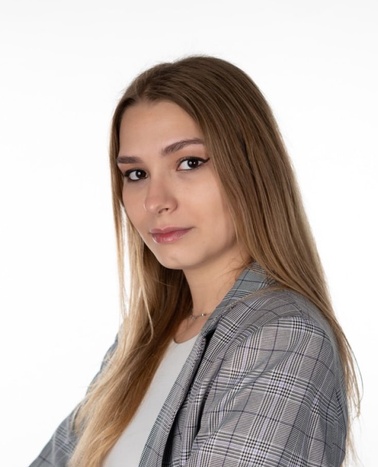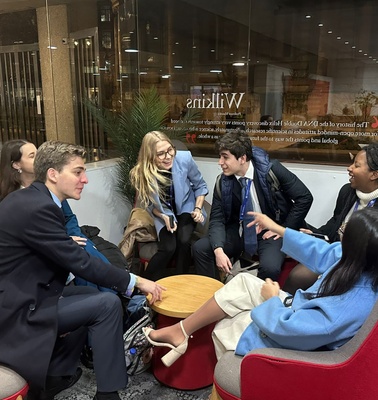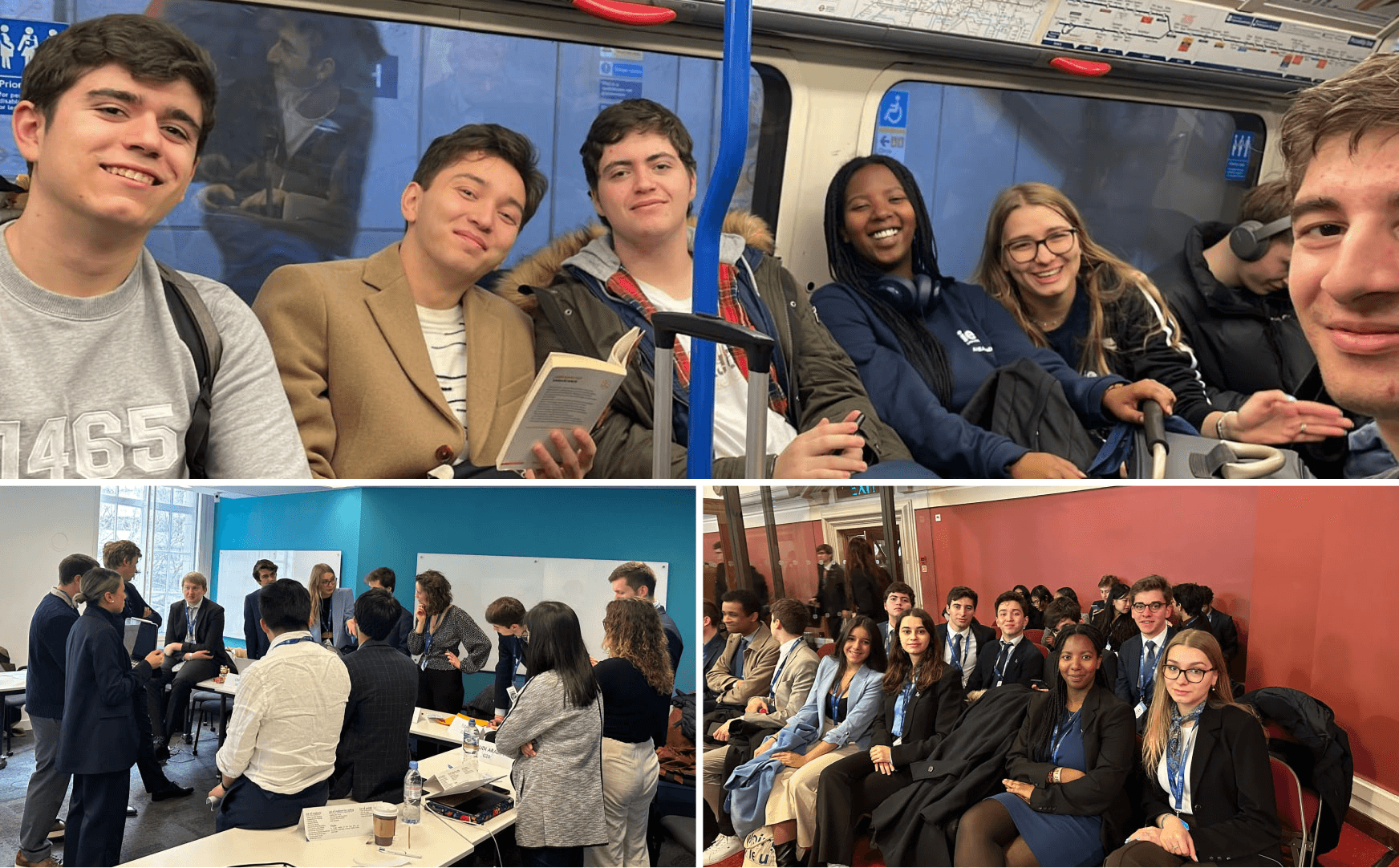
Maria-Cătălina Văduva
My name is Maria-Cătălina Văduva and I am from Romania. When the time came to choose a degree that would influence my career path, I immediately fell in love with this undergraduate opportunity, because it perfectly blends my aspirations: law and global issues. My primary interests are criminal law and human rights law.

"The competition is fierce, but on your way to success, do not forget that you are taking the stairs, not the elevator, to reach the last level."
Pushing her limits and trusting the process
Maria-Cătălina has been involved in debate since high school—so, on arrival at IE University to study the Dual Degree in Laws and International Relations, the first club she sought out was the IEU Debate Club. Her initial aim was to improve her oratory, negotiation, structural and critical skills, yet becoming an IEU Debate Club member has brought her much more than that.
The Debate Club also gave Maria-Cătălina the opportunity to participate in the London International Model United Nations (LIMUN) event. She describes the event as demanding, and admits that initially she was quite anxious, as this was the first time she had participated in this particular debate forum. Although she was aware that being on an expert committee, the Group of Twenty, would be challenging, she also felt it was an honor to be part of a delegation of eight people who shared her passion and empathy. While they represented different stances in divergent assemblies, including the European Council, the G20 and the Conference of Parties, they worked together to overcome any difficulties. Working on opening speeches, strategies, the use of metaphors and rule of procedures all served to bring the members of the delegation closer and fueled their desire for improvement.
For Maria-Cătălina, the most important part of participation in LIMUN was the experience itself. She was particularly impressed by the elegance of the opening ceremony, with all the nations represented by their flags, and the presence of a live orchestra. “It was as if time had frozen and we were part of the dance,” she explains. However, she admits that the lack of free time and sleep, as well as the intense negotiations, took their toll and she often wrestled with questions of how best to be a good leader and move the committee in the desired direction.

The trip proved eventful right up to the very last minute, with the delegation having to leave the closing ceremony early to catch their return flight. It was only on the way to the airport that they discovered which of them had won awards—and Maria-Cătălina’s name was the last to be announced as honorable mention for her representation of South Africa in the G20 debate. All their hard work had paid off, and as Maria-Cătălina puts it, “all of us were winners.” Although some of their rewards were material and others psychological, they had all achieved what they set out to do: network, push their limits, prove themselves and enjoy the experience.
Maria-Cătălina also credits the support of IE University faculty and the debate trainer, Kevin Febres, for her delegation’s success. IE University had not only provided her with the required academic knowledge, but also with the confidence that the debate training instilled in her. “We are good debaters and this is the advantage that IE University has given us,” she states, adding that she felt able to express her uniqueness while always having the support of the other delegates.
When asked for her advice to students interested in participating in a Model United Nations event, Maria-Cătălina has three main tips. First, teamwork is key: it’s important to remember that this is just a simulation, and you are all there with the same purpose, so it’s vital to trust each other. Although at one level, you are representing yourself, you are part of a group and need to be ready to take on different roles.
Maria-Cătălina also stresses that the prize is not the goal, noting that while some students win a prize at their first MUN, others with considerable debate experience receive nothing. Her advice is to make the best of every situation and go with an open mind: you may even form lifelong friendships. “It’s all about the work and the motivation that you put in,” she says. Finally, although a MUN can be stressful and overwhelming, it’s also an opportunity to have fun and find happiness in what you do. She emphasizes the importance of trusting the process: “Do it. Go for it. Don’t think twice, and go with the flow.”